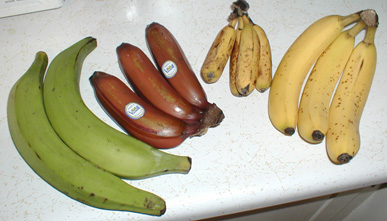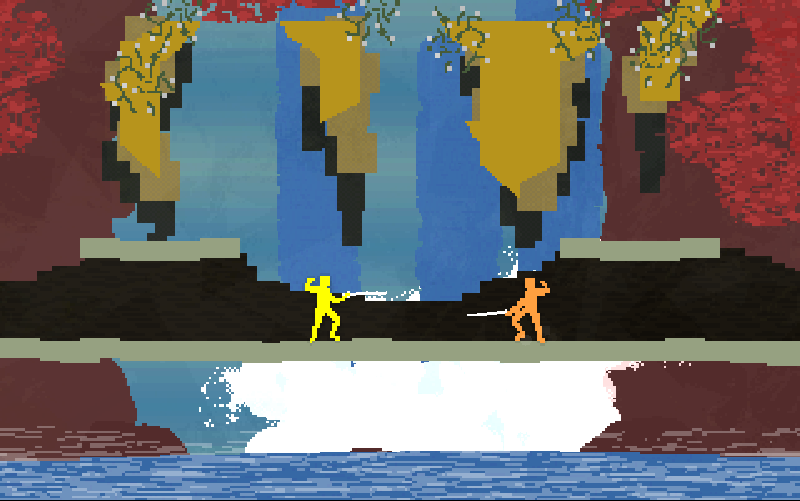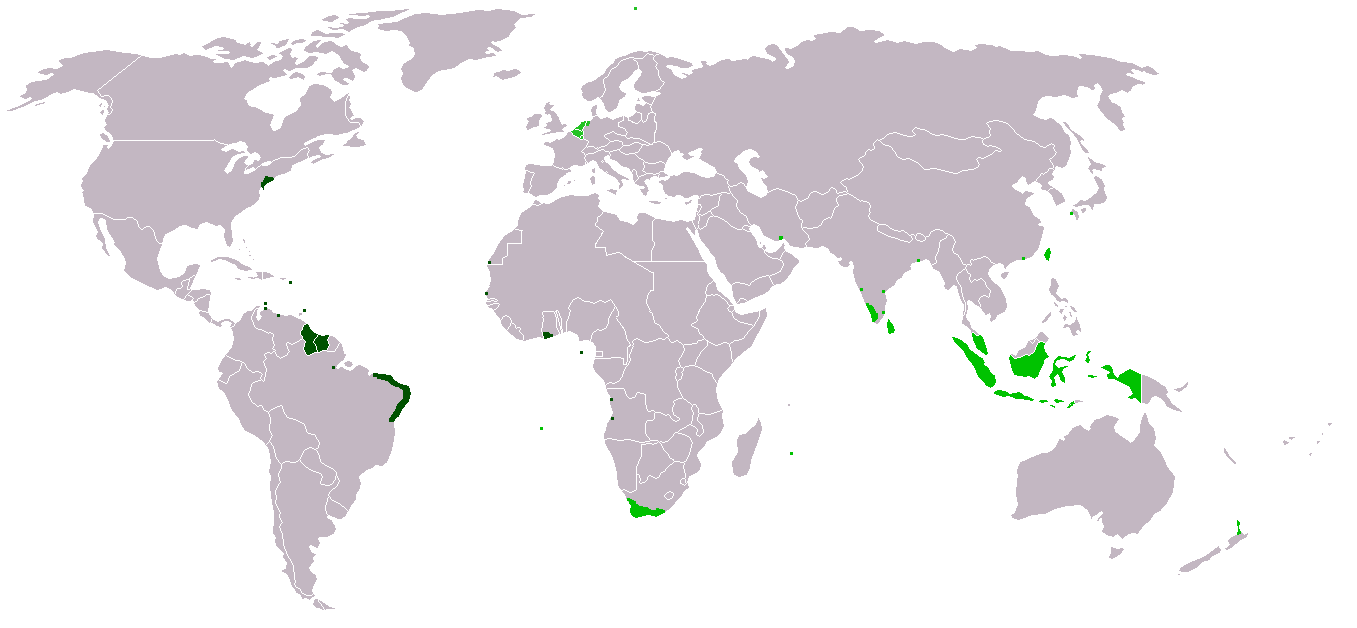|
Dandara
Dandara (full name in Portuguese language, Portuguese: ''Dandara dos Palmares'') (1654 – February 6, 1694 CE) was an Afro-Brazilians, Afro-Brazilian warrior of the Colonial Brazil, colonial period of Brazil and was part of the Palmares (quilombo), Quilombo dos Palmares, a settlement of Afro-Brazilian people who freed themselves from Slavery in Brazil, enslavement, in the present-day state of Alagoas. After being arrested on February 6, 1694, she committed suicide, refusing to return to a life of slavery. She is a mysterious figure today, because not much is known about her life. Most of the stories about her are varied and disconnected. She and her husband Zumbi dos Palmares, the last king of the Quilombo dos Palmares, had three children. Personality and abilities Described as a hero, Dandara dominated the techniques of capoeira and fought many battles alongside men and women to defend Palmares, Pernambuco, Palmares, the place where escaped slaves would go to live safely. ... [...More Info...] [...Related Items...] OR: [Wikipedia] [Google] [Baidu] |
Dandara (video Game)
''Dandara'' is a 2D platformer and Metroidvania video game developed by Brazilian studio Long Hat House and published by Raw Fury in 2018. Gameplay ''Dandara'' is a 2D platformer and Metroidvania game. Players take control of the eponymous protagonist who traverses the game's world by warping between white surfaces. The game's protagonist and themes are based on the life of Brazilian historical figure Dandara. Development and release ''Dandara'' was developed by Brazilian studio Long Hat House and published by Raw Fury. The game was released for Android (operating system), Android, iOS, Linux, macOS, Windows, Nintendo Switch, PlayStation 4 and Xbox One on 6 February 2018. Reception Reception towards ''Dandara'' was generally mixed, leaning towards positive. It was better accepted in publications centered towards mobile platforms, showing its origins as a touchscreen-first game. ''Dandara'' received a nomination for "D.I.C.E. Award for Mobile Game of the Year, Portable Game o ... [...More Info...] [...Related Items...] OR: [Wikipedia] [Google] [Baidu] |
Jarid Arraes
Jarid Arraes (born 12 February 1991, Juazeiro do Norte) is a Brazilian poet and writer. She is the writer of such books as ''As Lendas de Dandara'', ''Heroínas Negras Brasileiras em 15 cordéis'', ''Um buraco com meu nome'', and ''Redemoinho em dia quente''. Arraes lives in São Paulo, where she created the Women's Writing Club ( Portuguese: ''Clube da Escrita Para Mulheres).'' To date, she has more than 70 publications in the cordel literature style, including the biographical collection ''Heroínas Negras na História do Brasil''. Biography Early life Arraes was born in 1991 in Juazeiro do Norte, Ceará. During her childhood, Arraes grew up with a strong connection to literature, being most acutely influenced by family. She is a descendent of Mestre Noza, considered one of the city's greatest artists and a pioneer in cordel literature. Her grandfather, Abraão Batista, was a poet, woodcutter, sculptor, ceramist, engraver, and teacher. From the end of the 1960s, he had al ... [...More Info...] [...Related Items...] OR: [Wikipedia] [Google] [Baidu] |
Palmares (quilombo)
Palmares, or Quilombo dos Palmares, was a ''quilombo'', a community of escaped slaves and others, in colonial Brazil that developed from 1605 until its suppression in 1694. It was located in the captaincy of Pernambuco, in what is today the Brazilian state of Alagoas. The quilombo was located in what is now the municipality of União dos Palmares. Background The modern tradition has been to call the community the ''Quilombo of Palmares''. ''Quilombos'' were settlements mainly of survivors and free-born enslaved African people. The ''quilombos'' came into existence when Africans began arriving in Brazil in the mid-1530s and grew significantly as slavery expanded. No contemporary document called Palmares a ''quilombo''; instead the term '' mocambo'' was used. Palmares was home to not only escaped enslaved Africans, but also to Indigenous peoples, caboclos, and poor or marginalized Portuguese settlers, especially Portuguese soldiers trying to escape forced military service. Ove ... [...More Info...] [...Related Items...] OR: [Wikipedia] [Google] [Baidu] |
Zumbi Dos Palmares
Zumbi ( – November 20, 1695), also known as Zumbi dos Palmares (), was a Brazilian quilombola leader and one of the pioneers of resistance to enslavement of Africans by the Portuguese in colonial Brazil. He was also the last of the kings of the Quilombo dos Palmares, a settlement of Afro-Brazilian people who liberated themselves from enslavement in the present-day state of Alagoas, Brazil. He is revered in Afro-Brazilian culture as a symbol of African freedom. Quilombos ''Quilombos'' were communities in Brazil founded by individuals of African descent who escaped slavery (these escaped slaves are commonly referred to as maroons). Members of quilombos often returned to plantations or towns to encourage their former fellow Africans to flee and join the quilombos. If necessary, they brought others by force and sabotaged plantations. Anyone who came to quilombos on their own were considered free, but those who were captured and brought by force were considered slaves and contin ... [...More Info...] [...Related Items...] OR: [Wikipedia] [Google] [Baidu] |
Portuguese Language
Portuguese ( or ) is a Western Romance language of the Indo-European language family originating from the Iberian Peninsula of Europe. It is the official language of Angola, Brazil, Cape Verde, Guinea-Bissau, Mozambique, Portugal and São Tomé and Príncipe, and has co-official language status in East Timor, Equatorial Guinea and Macau. Portuguese-speaking people or nations are known as Lusophone (). As the result of expansion during colonial times, a cultural presence of Portuguese speakers is also found around the world. Portuguese is part of the Iberian Romance languages, Ibero-Romance group that evolved from several dialects of Vulgar Latin in the medieval Kingdom of Galicia and the County of Portugal, and has kept some Gallaecian language, Celtic phonology. With approximately 250 million native speakers and 17 million second language speakers, Portuguese has approximately 267 million total speakers. It is usually listed as the List of languages by number of native speaker ... [...More Info...] [...Related Items...] OR: [Wikipedia] [Google] [Baidu] |
Banana
A banana is an elongated, edible fruit – botanically a berry – produced by several kinds of large treelike herbaceous flowering plants in the genus '' Musa''. In some countries, cooking bananas are called plantains, distinguishing them from dessert bananas. The fruit is variable in size, color and firmness, but is usually elongated and curved, with soft flesh rich in starch covered with a peel, which may have a variety of colors when ripe. It grows upward in clusters near the top of the plant. Almost all modern edible seedless ( parthenocarp) cultivated bananas come from two wild species – '' Musa acuminata'' and ''Musa balbisiana'', or hybrids of them. ''Musa'' species are native to tropical Indomalaya and Australia; they were probably domesticated in New Guinea. They are grown in 135 countries, primarily for their fruit, and to a lesser extent to make banana paper and textiles, while some are grown as ornamental plants. The world's largest producers of bananas ... [...More Info...] [...Related Items...] OR: [Wikipedia] [Google] [Baidu] |
People From Pernambuco
The term "the people" refers to the public or common mass of people of a polity. As such it is a concept of human rights law, international law as well as constitutional law, particularly used for claims of popular sovereignty. In contrast, a people is any plurality of persons considered as a whole. Used in politics and law, the term "a people" refers to the collective or community of an ethnic group or nation. Concepts Legal Chapter One, Article One of the Charter of the United Nations states that "peoples" have the right to self-determination. Though the mere status as peoples and the right to self-determination, as for example in the case of Indigenous peoples (''peoples'', as in all groups of indigenous people, not merely all indigenous persons as in ''indigenous people''), does not automatically provide for independent sovereignty and therefore secession. Indeed, judge Ivor Jennings identified the inherent problems in the right of "peoples" to self-determination, as i ... [...More Info...] [...Related Items...] OR: [Wikipedia] [Google] [Baidu] |
Independent Game
An indie video game or indie game (short for independent video game) is a video game created by individuals or smaller development teams without the financial and technical support of a large game publisher, in contrast to most "AAA" (triple-A) games. Because of their independence and freedom to develop, indie games often focus on innovation, experimental gameplay, and taking risks not usually afforded in AAA games. Indie games tend to be sold through digital distribution channels rather than at retail due to a lack of publisher support. The term is analogous to independent music or independent film in those respective mediums. Indie game development bore out from the same concepts of amateur and hobbyist programming that grew with the introduction of the personal computer and the simple BASIC computer language in the 1970s and 1980s. So-called bedroom coders, particularly in the United Kingdom and other parts of Europe, made their own games and used mail order to distribute th ... [...More Info...] [...Related Items...] OR: [Wikipedia] [Google] [Baidu] |
Pernambuco
Pernambuco ( , , ) is a States of Brazil, state of Brazil located in the Northeast Region, Brazil, Northeast region of the country. With an estimated population of 9.5 million people as of 2024, it is the List of Brazilian states by population, seventh-most populous state of Brazil and with around 98,067.877 km2, it is the List of Brazilian states by area, 19th-largest in area among federative units of the country. It is also the sixth-most densely populated with around 92.37 people per km2. Its capital and largest city, Recife, is one of the most important economic and urban hubs in the country. Based on 2019 estimates, the Recife metropolitan area, Recife Metropolitan Region is seventh-most populous in the country, and the second-largest in Northeast Region, Brazil, northeastern Brazil. In 2015, the state had 4.4% of the national population and produced 2.8% of the national gross domestic product (GDP). The contemporary state inherits its name from the Captaincy of Pernambuco, ... [...More Info...] [...Related Items...] OR: [Wikipedia] [Google] [Baidu] |
Ganga Zumba
Nganga Nzumba () (c. 1630 - 1678) was the first leader of the massive runaway slave settlement of Quilombo dos Palmares, or Angola Janga, in the present-day state of Alagoas, Brazil. Zumba was enslaved and escaped bondage on a sugar plantation and eventually rose to the position of highest authority within the kingdom of Palmares, and the corresponding title of ''Ganga Zumba''. The name Although some Portuguese documents regard Ganga Zumba as his proper name, and this name is widely used today, the most important of the documents translates the name as "Great Lord." In Kikongo, ''nganga a nzumbi'' was "the priest responsible for the spiritual defense of the community" which was a ''kilombo'' or military settlement made up multiple groups. A letter written to him by the governor of Pernambuco in 1678 and now found in the Archives of the University of Coimbra, calls him "Ganazumba," which is a better translation of "Great Lord" (in Kimbundu). Early life Ganga is said to hav ... [...More Info...] [...Related Items...] OR: [Wikipedia] [Google] [Baidu] |
Dutch Invasions In Brazil
The Dutch invasions in Brazil, ordered by the Dutch West India Company (WIC), occurred during the 17th century. Considered the biggest political-military conflict in the Colonial Brazil, colony, the invasions were centered on the control of sugar and slave supply sources. Although they were concentrated in the Northeast Region, Brazil, Northeast, they were not just a regional episode. There were two interconnected, albeit distant, fronts: Brazil and Africa. The resistance was characterized by a financial and military effort based on local and external resources. The funds raised in the colony accounted for two thirds of the expenditure between 1630 and 1637, with mostly European troops, and almost all of the expenditure between 1644 and 1654, with soldiers mainly from Pernambuco. On 26 January 1654, the Dutch surrendered and signed the capitulation, after the tide turned against the Dutch when the Dutch suffered a significant defeat at the Second Battle of Guararapes in 1649, ack ... [...More Info...] [...Related Items...] OR: [Wikipedia] [Google] [Baidu] |




